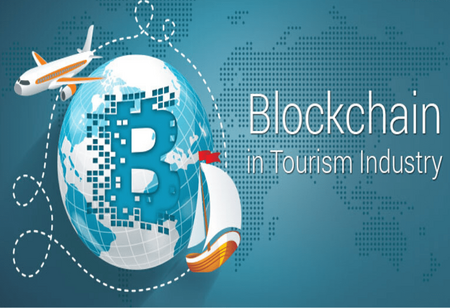How Blockchain can Transform the Indian Tourism Industry?
By Tanuja A Akkannavar
 The impact of blockchain has spread across banking, healthcare, automotive, real estate, and a variety of other industries. Bitcoin was the first action in regulating a decentralized, public record without any direct control or authority, and since then, various related compacts have been used to solve other problems, such as those in the worldwide commerce industry.
The impact of blockchain has spread across banking, healthcare, automotive, real estate, and a variety of other industries. Bitcoin was the first action in regulating a decentralized, public record without any direct control or authority, and since then, various related compacts have been used to solve other problems, such as those in the worldwide commerce industry.
Transportation is one crucial innovation that all sorts of trading have in common due to the fact that it serves as a link between the customer and the retailer. This is what binds the customer and the assets together, as well as the evidence that the dealer will use to show the assets. Transportation is sometimes referred to as the ‘backbone’ of business transactions.
Blockchain's discovery has extended across all industries, according to industry analysts, propelling the travel industry to the next level, it aids in the improvement of travel effectiveness by dynamically reducing trip expenses and time. Blockchain technology has the potential to solve a variety of issues in the industry, and the temperature of commodities such as pharmaceuticals can be controlled using Blockchain technology while they are being transported. It facilitates the payment process by cutting processing time and eliminating the cost of third-party agents.
How can Blockchain Transform Tourism Industry?
Stability and security are two of the most important benefits that blockchain technology may provide to the travel sector. The blockchain's decentralized nature ensures that data never goes down or is lost due to accidental deletion or a malicious cyber assault, guaranteeing that transactions are always traceable.
Different companies communicate information amongst one another in the travel industry. Travel agencies, for example, must provide client information to airlines and hotels, and travelers' personal possessions are frequently transmitted between organizations and tracked. Because the responsibility for preserving essential data is shared across the whole network, blockchain can make accessing and storing it easier and more dependable.
Benefits of Implementing Blockchain in Tourism Company
1. Decentralized Booking –
Companies can create a decentralized booking system using Blockchain Technology in Travel and Tourism, allowing travelers to book flights directly with airline service providers. This alleviates the issue of overbooking, and this decentralized booking mechanism can provide a better consumer experience.
2. Tracking Luggage and Goods –
While traveling, luggage and items can be passed between numerous hands. It can be quite useful for tracking the movement of goods and luggage, especially when dealing with the worldwide tourism industry. The travel companies can follow the data of the customer luggage in less time by using Blockchain.
3. Identification Services –
The travel sector relies heavily on identification services, and blockchain has the potential to become the industry standard for storing this data. Because a simple finger print or retina scan can replace exhibiting documents, the technology has the potential to substantially shorten check-in times or waits in airports when used in this way.
4. Secured Payments –
Payments on the blockchain network can be more transparent and safe because it is a decentralized ledger system. The travel sector can benefit from this technology by accepting digital currencies as payment for client engagements.
5. Documentation Services –
The travel industry relies heavily on documentation services, and Blockchain might become the industry standard for gathering and storing data for documentation. In this way, the Blockchain has been able to speed up the check-in process and ensure that documents are scanned accurately.
When blockchain technology takes over the entire processing of the travel business, there are many additional advantages. As a result, distributed ledger technology has the potential to make travel and tourism more convenient and secure. However, because established companies in the market are already actively working with the technology, they may not be disrupted by it. It will be fascinating to see if the tourism sector adopts blockchain on a large scale, and maybe this post has given you some ideas about the most interesting areas to research.







